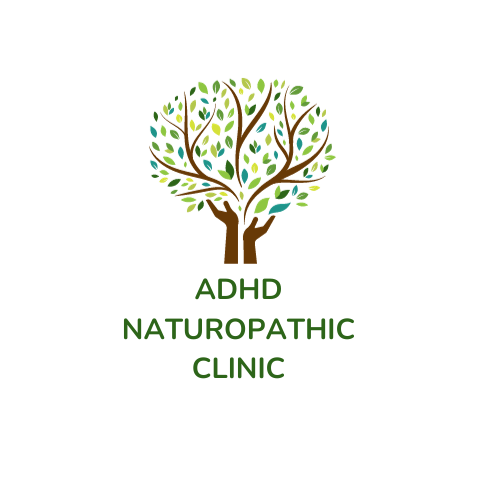Skin disorders
Skin disorders can manifest in various ways, often causing significant discomfort and affecting self-esteem. These conditions can range from mild irritations to severe and chronic issues that profoundly impact daily life. Symptoms such as persistent itching, redness, and inflammation can lead to constant physical discomfort and distraction. Visible skin issues like acne, eczema, and psoriasis can also affect one's appearance, leading to feelings of embarrassment, social anxiety, and diminished self-confidence. The chronic nature of many skin disorders can result in ongoing frustration and emotional distress, making it difficult for individuals to engage fully in personal and professional activities. Additionally, the unpredictability of flare-ups can create a sense of helplessness and stress, further exacerbating the condition. Addressing both the physical symptoms and the emotional toll of skin disorders is crucial for overall well-being and quality of life.
Common symptoms include:
- Rashes and Redness: Inflammatory responses in the skin can lead to rashes, redness, and irritation. Conditions like eczema, psoriasis, and dermatitis often present with these symptoms.
- Dryness and Flaking: Chronic dryness, scaling, and flaking can occur, particularly in conditions like eczema and psoriasis. The skin may appear rough and may crack, leading to further discomfort.
- Itching: Persistent itching is a common symptom across many skin conditions, including eczema, hives, and scabies. It can be severe and interfere with daily activities and sleep.
- Acne and Pimples: Acne vulgaris is characterized by the presence of pimples, blackheads, whiteheads, and cysts, typically on the face, back, and chest. Hormonal changes and bacterial infections often contribute to acne.
- Discoloration: Changes in skin color, such as dark patches (hyperpigmentation) or light patches (hypopigmentation), can be seen in conditions like vitiligo and melasma.
- Blisters and Sores: Some skin conditions, such as herpes simplex and impetigo, lead to the formation of blisters and sores that can be painful and prone to infection.
- Swelling and Inflammation: Inflammatory skin conditions can cause localized swelling and tenderness. Conditions like cellulitis and urticaria (hives) are examples.
Why These Issues Occur
Skin disorders can arise from a variety of factors, often involving complex interactions between genetics, environment, and lifestyle. Key contributing factors include:
Genetic Predisposition: Many skin conditions, such as eczema, psoriasis, and vitiligo, have a genetic component. A family history of these conditions increases the likelihood of their development.
Environmental Triggers: Exposure to irritants, allergens, pollutants, and harsh weather conditions can exacerbate skin problems. For example, allergens can trigger eczema flare-ups, while UV radiation can worsen conditions like lupus.
Immune System Dysfunction: Autoimmune responses can target the skin, leading to conditions like psoriasis and lupus. The immune system mistakenly attacks healthy skin cells, causing inflammation and other symptoms.
Hormonal Changes: Hormonal fluctuations, particularly during puberty, menstruation, pregnancy, and menopause, can lead to conditions like acne and melasma.
Nutritional Deficiencies: Deficiencies in essential nutrients, such as vitamins A, D, E, and zinc, can impair skin health and contribute to conditions like eczema and acne.
Infections: Bacterial, viral, and fungal infections can lead to various skin problems. For instance, bacteria can cause acne, while fungi are responsible for conditions like ringworm and athlete's foot.
How Our Testing Can Help
At our clinic, we use targeted testing methods to uncover the underlying causes of skin issues and create tailored treatment plans. To ensure we recommend the most effective tests and health protocols for your situation, you will need to book an initial consultation. During this consultation, we will evaluate your specific needs and suggest the most appropriate testing to help you move forward with a personalized and effective approach to improving your health. The specific testing methods we use will be determined based on your individual needs and may include one or more of the following options.
- Organic Acids Test (OAT): This comprehensive urine test evaluates metabolic byproducts, revealing imbalances in gut bacteria, yeast overgrowth, and nutrient deficiencies. Skin health is closely linked to gut health, and the OAT can uncover underlying factors contributing to skin issues.
- GI Mapping: This DNA-based stool test analyzes the microbial composition of your gut, identifying pathogens, dysbiosis, and markers of inflammation. Since gut health is crucial for overall skin health, GI Mapping provides insights into gut-related triggers of skin conditions and helps tailor interventions to restore balance.
- Genetic Testing: By examining specific genetic markers, we can identify predispositions to skin disorders and understand how your genetic makeup influences skin health. This information helps us create personalized strategies to manage and mitigate the impact of your genetic predispositions.
- Blood Tests: Comprehensive blood work measures hormone levels, markers of inflammation, and specific autoantibodies. Blood tests help diagnose skin conditions, monitor disease activity, and assess overall health, guiding targeted treatment approaches.
- Allergy Testing: we utilize comprehensive allergy testing to identify potential allergens that may be triggering or exacerbating skin disorders. This testing involves both blood tests to detect sensitivities or allergic reactions to a wide range of substances, including foods, environmental allergens, and contact irritants. By pinpointing specific allergens, we can help you understand what might be contributing to your skin issues. Knowing these triggers allows us to create a personalized treatment plan that includes avoidance strategies, dietary modifications, and targeted therapies to reduce allergic reactions and promote healthier skin.
- Mycotoxin Testing: Toxic compounds produced by certain types of mold, can significantly impact skin health. We offer advanced mycotoxin testing to detect the presence of these harmful substances in your body. This non-invasive urine test identifies specific mycotoxins that can cause a range of symptoms, including skin rashes, itching, and other dermatological issues. Mycotoxin exposure often goes unnoticed, yet it can be a hidden cause of chronic skin problems and other health issues. By identifying and addressing mycotoxin exposure, we can develop a detoxification plan to eliminate these toxins from your system, support your immune function, and improve your skin condition.
Getting to the Root Cause
Our holistic approach focuses on identifying and addressing the root causes of your skin symptoms rather than merely treating the manifestations. By using advanced testing methods, we gain a comprehensive understanding of the factors contributing to your skin condition. This enables us to develop a personalized treatment plan that may include:
- Dietary and Lifestyle Changes: Recommendations to reduce inflammation, support immune function, and promote overall well-being. This might involve eliminating potential food triggers, incorporating anti-inflammatory foods, and adopting stress management techniques.
- Supplements and Herbal Medicine: Targeted supplementation and herbal remedies to support skin health, reduce inflammation, and alleviate symptoms. Herbs such as turmeric, burdock root, and calendula can help modulate immune responses and support overall skin health.
- Gut Health Optimization: Strategies to heal the gut, restore microbial balance, and reduce intestinal permeability. This may include probiotics, prebiotics, and specific dietary protocols to support gut integrity and overall health.
- Stress Management: Techniques to reduce and manage chronic stress, such as mindfulness practices, exercise, and relaxation techniques. Managing stress is crucial for balancing immune function and supporting overall skin health.
By addressing the underlying causes of your skin symptoms, we aim to help you achieve long-term relief and improved quality of life. If you're experiencing any of these symptoms, consider scheduling an appointment to begin your journey towards better skin health and overall well-being.

